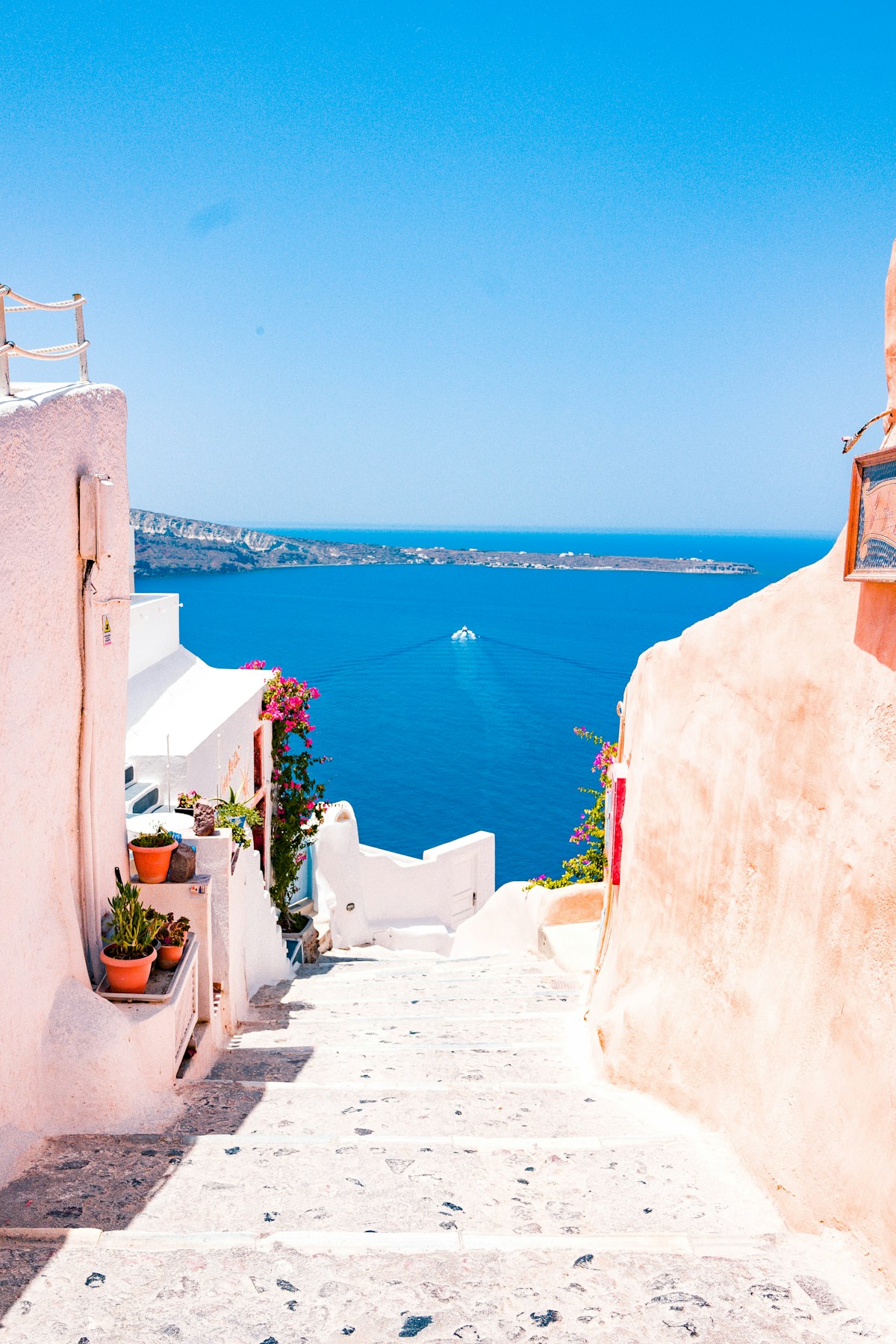
The Ultimate Guide to Greek Islands for Digital Nomads 2026
The Ultimate Guide to Greek Islands for Digital Nomads
Imagine taking Zoom calls with the Aegean Sea as your backdrop, enjoying fresh Greek salads for lunch, and watching legendary sunsets after work. The Greek islands offer digital nomads a unique blend of beauty, culture, and increasingly excellent remote work infrastructure.
Why Choose Greek Islands for Remote Work?
- Affordable living: 30-50% cheaper than Western Europe
- Digital Nomad Visa: Greece offers a specific visa for remote workers
- Reliable internet: Most islands now have fiber and 4G/5G coverage
- Time zone friendly: GMT+2/3 works well for EU and can accommodate US east coast
- Incredible lifestyle: Beach, history, food, and friendly locals
Top 5 Greek Islands for Digital Nomads
1. Crete - The All-Rounder
Best for: Long-term stays, families, diverse experiences
Crete is Greece's largest island and arguably the best for digital nomads seeking variety.
Pros:
- Excellent internet infrastructure
- Multiple coworking spaces (Heraklion, Chania)
- International airport with year-round connections
- Affordable long-term rentals (€400-800/month)
- Rich culture and endless exploration
Cons:
- Large island requires transportation
- Can feel less "island-like" in cities
Where to base: Chania (old town charm) or Heraklion (city amenities)
Average costs:
- Rent: €500-800/month
- Coworking: €150-200/month
- Meal out: €10-15
2. Syros - The Hidden Gem
Best for: Authentic Greek experience, creative types
Syros is the administrative capital of the Cyclades but remains refreshingly untouristy.
Pros:
- Strong local community year-round
- Excellent WiFi and 4G coverage
- Beautiful neoclassical architecture
- Affordable (cheaper than Mykonos/Santorini)
- Ferry hub for island hopping
Cons:
- Smaller expat community
- Limited nightlife
- No direct international flights
Where to base: Ermoupoli (the charming capital)
Average costs:
- Rent: €400-600/month
- Coworking: Limited (cafés with WiFi)
- Meal out: €8-12
3. Rhodes - History Meets Connectivity
Best for: History buffs, those needing reliable infrastructure
Rhodes offers excellent infrastructure, a UNESCO medieval old town, and consistent sunshine.
Pros:
- International airport
- Fast internet throughout
- Vibrant old town for after-work exploration
- Active expat and digital nomad community
- Beach and city lifestyle
Cons:
- Very touristy in summer
- Prices spike in peak season
Where to base: Rhodes Old Town or Lindos (for beach vibes)
Average costs:
- Rent: €500-900/month
- Coworking: €100-180/month
- Meal out: €12-18
4. Naxos - The Balanced Choice
Best for: Beach lovers seeking tranquility
Naxos offers the perfect balance between Cycladic beauty and practical living.
Pros:
- Large island with diverse landscapes
- Excellent beaches
- Good internet in main town
- More affordable than neighboring Mykonos
- Great local food scene
Cons:
- Quieter in winter months
- Limited coworking options
Where to base: Naxos Town (Chora)
Average costs:
- Rent: €450-700/month
- Coworking: Café culture
- Meal out: €10-14
5. Corfu - The Cosmopolitan Option
Best for: Those wanting Italian-Greek fusion, green landscapes
Corfu's Venetian influence creates a unique atmosphere unlike other Greek islands.
Pros:
- International airport
- Beautiful green landscapes
- Cosmopolitan Corfu Town
- Good WiFi and mobile coverage
- Milder climate
Cons:
- Rainier than other islands
- Higher prices in tourist areas
Where to base: Corfu Town
Average costs:
- Rent: €550-850/month
- Coworking: Several options available
- Meal out: €12-16
Practical Essentials
Internet Connectivity
Most Greek islands now offer:
- Fiber in main towns (50-100 Mbps)
- 4G coverage island-wide
- 5G in larger islands (Crete, Rhodes)
Pro tip: Get a Cosmote or Vodafone SIM for reliable mobile data backup.
Coworking Spaces
Dedicated spaces exist on:
- Crete: Sandbox (Chania), Stone Soup (Heraklion)
- Rhodes: The Hive Rhodes
- Corfu: Corfu Innovation Hub
Greek Digital Nomad Visa
Requirements:
- Proof of remote employment or freelance work
- Minimum income: €3,500/month
- Health insurance
- Clean criminal record
Duration: 1 year, renewable
Best Time to Visit
| Season | Pros | Cons | |--------|------|------| | Apr-Jun | Perfect weather, affordable | Some services opening | | Jul-Aug | Everything open, nightlife | Crowded, expensive | | Sep-Oct | Warm seas, fewer crowds | Some places closing | | Nov-Mar | Cheapest, authentic | Many islands quiet |
Budget Breakdown (Monthly)
| Expense | Budget | Mid-Range | Comfortable | |---------|--------|-----------|-------------| | Rent | €400 | €600 | €900 | | Food | €200 | €350 | €500 | | Coworking | €0 (cafés) | €150 | €200 | | Transport | €50 | €100 | €200 | | Activities | €100 | €200 | €400 | | Total | €750 | €1,400 | €2,200 |
Top Tips for Digital Nomads
- Test internet before committing to long-term rental
- Learn basic Greek - locals appreciate the effort
- Join local Facebook groups for nomad meetups
- Consider shoulder seasons for best value
- Get an EHIC/GHIC card if from EU for healthcare
Final Thoughts
The Greek islands offer digital nomads something truly special - the chance to live the Mediterranean dream while maintaining a productive work life. Whether you choose bustling Crete or tranquil Syros, you'll find a warm welcome, excellent food, and the kind of work-life balance that's hard to achieve elsewhere.
Start with one island, but don't be surprised if you find yourself island-hopping for months!
Ready to explore more Mediterranean remote work destinations? Check out our guides to Portugal and Croatia for digital nomads.
Related Posts

Digital Nomad Essentials: Must-Have Tools and Apps for Remote Work While Traveling
Everything you need to work remotely from anywhere in the world - from productivity apps to WiFi finders and virtual meeting tools.

Complete United Kingdom Travel Guide 2026
From London's iconic landmarks to Scotland's misty highlands, discover everything you need to plan your perfect UK adventure.

Top 10 Rooftop Bars in Budapest: Sky-High Drinks with Stunning Views
Discover Budapest's best rooftop bars for 2026 - from hidden gems with Parliament views to trendy terraces overlooking the Danube, your ultimate guide to drinking above the city.